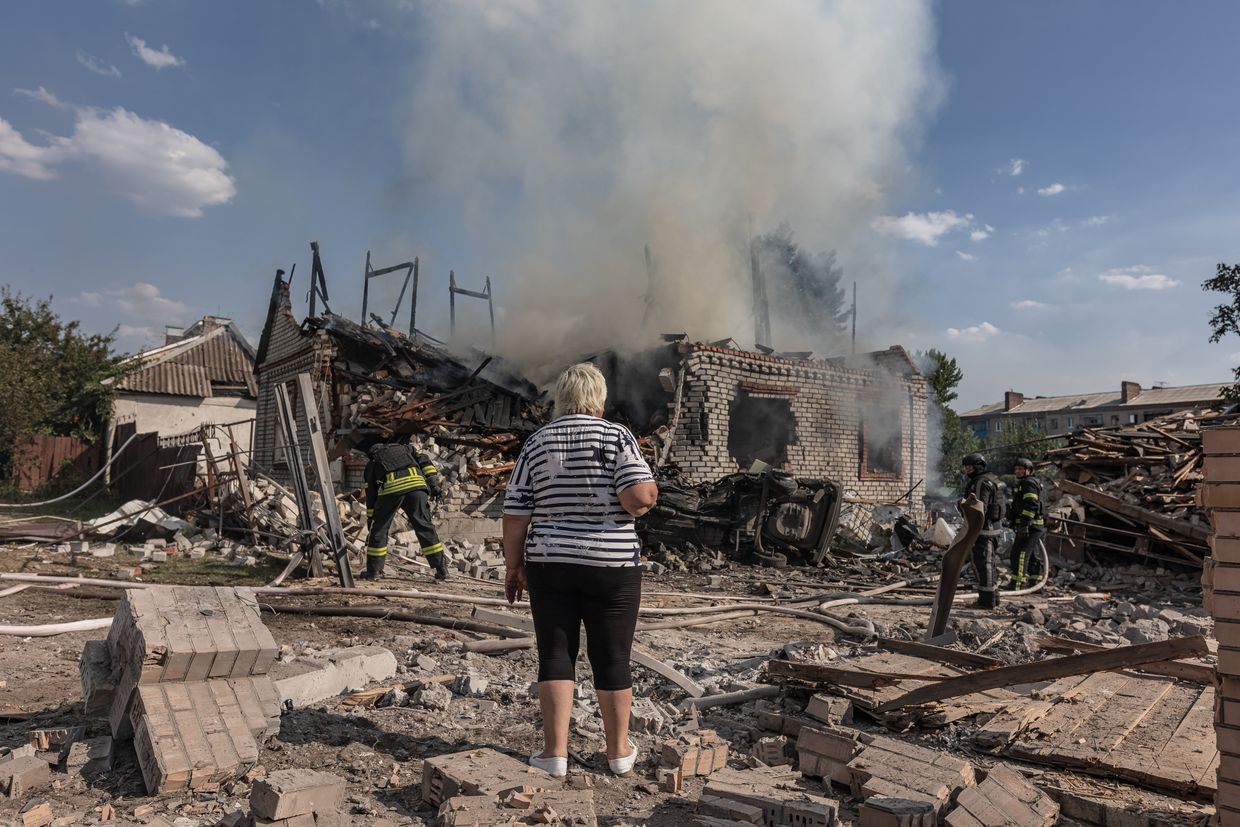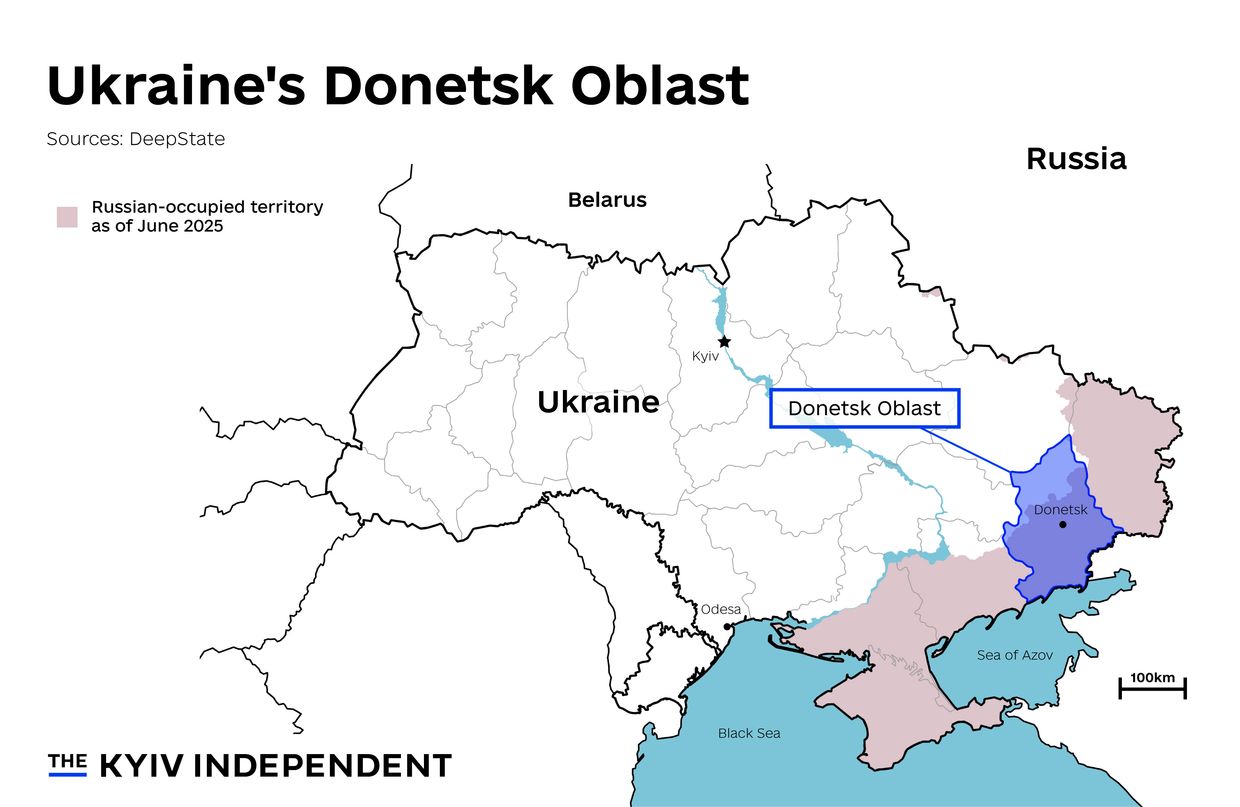Ukraine resolving Russian-designed humanitarian crisis at Georgia border

Ukraine is working to resolve a humanitarian crisis reportedly designed by Russia near the Georgian border, after Moscow intensified deportations of Ukrainian citizens in what Kyiv calls a systematic pressure campaign against neighboring countries.
The Georgia border crisis represents how Russia weaponizes individual Ukrainian suffering to destabilize regional cooperation, creating impossible choices for neighboring countries between humanitarian obligations and security concerns.
Ukrainian deportees stranded at the Russia-Georgia border ended their 3-day hunger strike on August 8 after Ukrainian Embassy representatives gained access to the checkpoint, but 96 people remain trapped in basement conditions at the Dariali crossing as Russia’s broader strategy continues.
“Our state is ready to take its people directly, rather than via Georgia and Moldova,” Ukraine’s Foreign Ministry stated. “The Russian Federation is ignoring this request, which indicates Moscow’s desire to deliberately create a humanitarian crisis on the Russian-Georgian border.”
Since mid-June, Russia has significantly escalated the deportation of Ukrainian citizens — primarily former prisoners who served sentences in occupied Ukrainian territories and were forcibly transferred to Russian detention facilities, according to the Ministry of Foreign Affairs.
Moscow then deports these individuals through the Georgia border rather than allowing direct repatriation to Ukraine, creating complications for regional cooperation. The operation transforms individual Ukrainian citizens into pressure tools against Georgia’s sovereignty and Ukraine’s diplomatic relationships.
96 Ukrainians trapped in border limbo
This systematic campaign has resulted in 96 Ukrainians being stranded in a buffer zone at the Dariali checkpoint. People are being held with inadequate shelter, food, medical care, and legal support in basement conditions designed for much smaller numbers.
Desperation mounted as some deportees announced a hunger strike on August 5, demanding permission to cross into Georgia after being held in cramped conditions since mid-June.
Meanwhile, entry into Georgia is largely denied due to concerns over security and documentation. Many deportees are former prisoners with criminal backgrounds, creating legitimate security concerns for Georgian authorities while leaving the individuals trapped without legal status.
Deportation operations intensify at Georgia crossing
Since mid-June, Russia has significantly intensified deportations across the Georgia border.. While Ukraine successfully evacuated 44 citizens since late June, 96 remain stranded as Russian deportations continue.
The Ukrainian Foreign Ministry noted this “may indicate a deliberate Russian operation” designed to overwhelm Georgia’s capacity to handle deportees.
The crisis intensified in July when Moldova temporarily suspended transit for this category of deportees, leaving more people stranded at the Dariali checkpoint with no clear exit route to Ukraine.
Ukrainian diplomacy breaks immediate crisis
Ukrainian Embassy intervention ended the hunger strike on August 8 after consular representatives gained access to the stranded deportees. The Ukrainian Foreign Ministry confirmed that diplomatic contact provided temporary relief from the protest.
A representative of the deported Ukrainian citizens “expressed gratitude to the diplomatic mission for efforts to resolve the humanitarian crisis artificially created by the Russian side,” Ukraine’s Foreign Ministry reported after the hunger strike ended.
Ukraine successfully evacuated 44 citizens from the border zone since late June, but Russian deportations continue outpacing rescue efforts as Moscow maintains pressure on regional cooperation mechanisms.
Russia’s systematic pressure operation
The Ukrainian Foreign Ministry noted that most deportees are “people who have previously been brought to criminal responsibility,” including those who served sentences in occupied Ukrainian territories and were forcibly transferred to Russian facilities, as well as Ukrainian citizens convicted of crimes within Russia.
According to the Foreign Ministry, rather than allowing direct repatriation across the Russia-Ukraine border, Moscow deliberately routes deportees through Georgia to create complications for both countries. This forces Georgia to choose between humanitarian obligations and legitimate security concerns while straining Ukraine’s diplomatic resources.
The crisis intensified when Moldova temporarily suspended transit for this category of deportees, eliminating the main evacuation route and leaving more people stranded at Dariali with no clear path home.
Regional cooperation under Russian pressure
Georgian authorities have expressed willingness to transport deportees to Tbilisi Airport, but only after Moldova confirms readiness to receive them as transit passengers, according to the MFA. This dependency on third-party coordination demonstrates how Russia’s strategy complicates regional cooperation.
The Dariali crossing represents the only viable exit route for Ukrainians deported from Russia, making Georgia’s cooperation essential while placing the country in an impossible position between humanitarian duties and security concerns.
Ukraine continues working with international organizations including the Red Cross, UNHCR, and International Organization for Migration to address the crisis, but Russia’s systematic approach suggests pressure will continue as Moscow weaponizes human suffering for strategic advantage.




